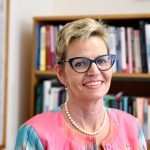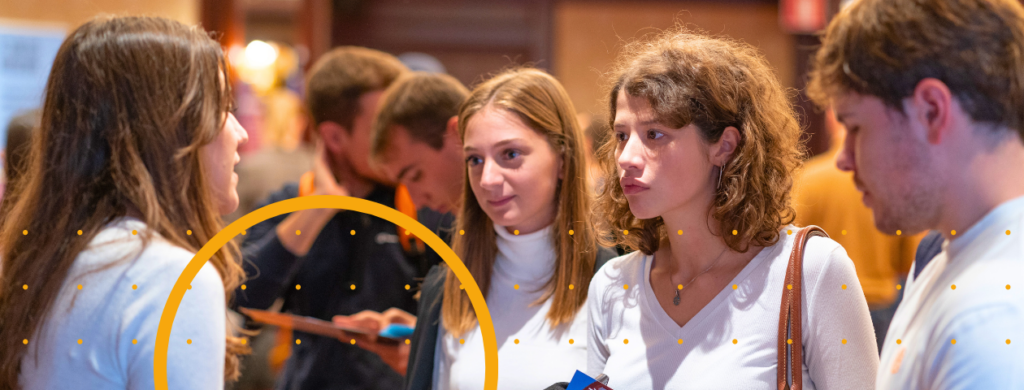
As 2022 draws to a close, higher education institutions across the globe are taking a moment to reflect on the past year and consider their goals and ambitions for 2023.
We asked representatives from universities across the world what they considered to be one of their institution’s most important new year’s resolutions for 2023.
Here’s what’s on the agenda for universities in 2023…
University of Bristol (UK)
To create a more equitable higher education partnerships between the global North and global South – particularly the African continent.

Professor Agnes Nairn is the Pro Vice-Chancellor Global Engagement at the University of Bristol and is responsible for shaping and leading the global civic agenda, international activities and the university’s global profile and reputation.
“By 2037, there will be an additional 115 million young people – mostly in Africa –but if Africa is to play a greater role in the future of higher education, then we all need to tackle the historically rooted inequities in the global research and science ecosystem that disadvantage African institutions.
The Perivoli Africa Research Centre at the University of Bristol works with networks across the African continent to tackle some of these systemic issues. In 2023, we resolve to help facilitate an Africa-centred Charter for action by higher education and policy institutions across the world. The Charter is a bold and revolutionary endeavor that champions a transformed mode of Global North-Africa research partnership to overcome current power imbalances.”
The University of Adelaide (Australia)
To facilitate more programmes that foster environmental sustainability.
 Dr Jessica Gallagher is the Deputy Vice-Chancellor of External Engagement and is responsible for leading the strategy and delivery of the university’s key services in domestic and international student recruitment, global engagement, alumni relations, philanthropy and industry and government relations.
Dr Jessica Gallagher is the Deputy Vice-Chancellor of External Engagement and is responsible for leading the strategy and delivery of the university’s key services in domestic and international student recruitment, global engagement, alumni relations, philanthropy and industry and government relations.
“We are ‘Here for Good’ – and in 2023 we will take further significant transformational steps towards net-zero campuses, accelerated research of global environmental importance, and build students who are sustainability literate and prepared for the necessary changes ahead.
Our culture and legacy are important to us – and we honour our proud past as we continue to grow and evolve to meet future needs and challenges.
We are determined in 2023, as we have been for all those years, to break new ground, to lead, to create, to connect and to nurture.”
IE University (Spain)
To influence positive change through education, research and innovation.
 Santiago Iñiguez is the President of IE University. Iñiguez has worked as a Management Consultant and has played a prominent role in the field of quality control and the development of business management education in Europe.
Santiago Iñiguez is the President of IE University. Iñiguez has worked as a Management Consultant and has played a prominent role in the field of quality control and the development of business management education in Europe.
“Innovation is key: we are reinventing education for the digital world, for the future generations, and continually applying new methodologies to our programmes. Because entrepreneurship forms part of our DNA, we develop global projects that promote entrepreneurship around the world – helping individuals build entrepreneurial and innovative mindsets for themselves and their organisations that will have a positive impact on our world.
Furthermore, sustainability is at the very heart of our institution. We look to the 2030 Agenda and define challenging goals for the IE University community to help protect our planet and foster environmental and ethical stewardship.
In 2023, we aspire for a movement of a new generation of professionals who carry a deep sense of responsibility to use their skills with purpose – to make a difference in some way for a better planet, better society, better workplaces, better selves.”
The University of Auckland (New Zealand)
To strengthen international outreach and leadership in sustainability.
 Dr Jingwen Mu is the Senior Global Strategy Advisor to the Vice-Chancellor at the university, and the newest QS Advisory Board member. Mu is responsible for leading the university’s Sustainable Development Goals (SDGs), mapping initiative and representing the university on partnerships and conferences.
Dr Jingwen Mu is the Senior Global Strategy Advisor to the Vice-Chancellor at the university, and the newest QS Advisory Board member. Mu is responsible for leading the university’s Sustainable Development Goals (SDGs), mapping initiative and representing the university on partnerships and conferences.
“The end of the year brings reflection and expectation – these thoughts are more pronounced as the year concludes three years of the Covid-19 pandemic with waves of the virus still closing borders and universities around the world. We also end the year with a global recession on the near horizon.
Yet there is cause for optimism. Higher education ends 2022 having witnessed a partial return of students and staff to campus. We started to reconnect and become more sharply focused on what is important for our students, staff, partners, communities and nations.
For the University of Auckland, 2023 will see a return of a vibrant campus life for students and staff while we strengthen our international outreach and sustainability leadership through partnerships and launch of our university-wide Sustainability Hub.”
Aarhus University (Denmark)
To grow our visibility and reputation to more prospective university students.
 As International Director, Rikke Nielsen is responsible for inbound and outbound exchange, recruitment, housing of international students for full degree programmes and oversees the AU Summer University.
As International Director, Rikke Nielsen is responsible for inbound and outbound exchange, recruitment, housing of international students for full degree programmes and oversees the AU Summer University.
“Here at Aarhus University in Denmark, we have an untraditional new year’s resolution for 2023. We don’t want to lose weight – we want to do the opposite and get bigger!
Many had never heard of Aarhus University before coming here, and we want to change that. We want to share the story of Aarhus, voted Denmark’s best student city, and the story that we don’t just want more international students – we want them to stay in Denmark!
We just launched a new career programme for international students – one that gives you a network among international companies, a mentor at a company, and the tools to build a successful career in one of the happiest countries in the world.
And unlike many other new year’s resolutions – we will continue even after January…”
RMIT University (Australia)
To continue the integration of sustainable outcomes at every university level.
 Angel Calderon is the Principal Advisor of Planning and Institutional Research and manages the university’s top level performance measurement regime, including global rankings.
Angel Calderon is the Principal Advisor of Planning and Institutional Research and manages the university’s top level performance measurement regime, including global rankings.
“In 2023, I would like to see university leaders around the world pay greater attention to the implementation of sustainability initiatives on campus and society at large. I would like to encourage our university leaders to prioritise projects which embed sustainability in every facet of university activity.”
Osaka University (Japan)
To continue our contribution to the achievement of the SDGs and the promise of leaving no one behind.
 Professor Kawahara Genta is the Executive Vice President of Global Engagement and is responsible for leading the integrated and organised global expansion of Osaka university, while strengthening the network for cooperation with relevant organisations.
Professor Kawahara Genta is the Executive Vice President of Global Engagement and is responsible for leading the integrated and organised global expansion of Osaka university, while strengthening the network for cooperation with relevant organisations.
“Presently, universities are confronted with growing anticipation from society to cultivate talent and foster innovation in a major reorientation of social systems to tackle challenges such as the COVID-19 pandemic and pursuit of the SDGs and carbon neutrality.
To respond to these significant societal changes, Osaka university has made a commitment to take a step beyond simply making ‘social contribution’, and to pursue ‘social creation’ – specifically, to create a society where each member leads a meaningful and fulfilling life.
We anticipate a momentous year, not only for our university but for our partners around the world as well. We look forward to making new memories in 2023 as we see increasing opportunities to come together.”
University of Bath (UK)
To continue to drive an inclusive university community.

Professor Rajani Naidoo is the Vice President of Community and Inclusion and provides strategic leadership in fostering a thriving, successful and inclusive community at the university.
“Our goal is characterised by excellence in education, research and innovation, working in partnership with others for the advancement of knowledge, and in support of the global common good.
Our values contribute to our desire to create a culture of care and trust. To achieve this, we will highlight and support the extraordinary level of innovative work on inclusion that has emerged in our university, including across research and teaching. Drawing on staff and student grassroot networks, we will develop two-way interactions with university leaders to sharpen our understanding of barriers and co-construct interventions so that all members of our community can realise their full potential.
In the context of discord and polarisation, we will enhance the space for dialogue. We will respect the rights of individuals to hold different views and beliefs, while ensuring that these differences are not manifested in a way that is hostile or degrading to other members of our community. Also, we will enhance cohesion by developing incentives to work together with actions that simultaneously enhance equity for a range of groups – collective learning and inclusive excellence will be promoted by a recognition of the importance of our complex intersectionality, as well as our interconnectedness.”
Season’s greetings from everyone at QS!
We are inspired every day by the passion and achievements of staff in the universities we work with across the globe.
As we reflect on another busy and exciting year at QS, we’d like to express our gratitude for the mission we share with our university partners: To enable motivated people anywhere in the world to fulfil their potential.
Thank you for supporting QS this year. We’re excited about what more we can achieve together in 2023.



